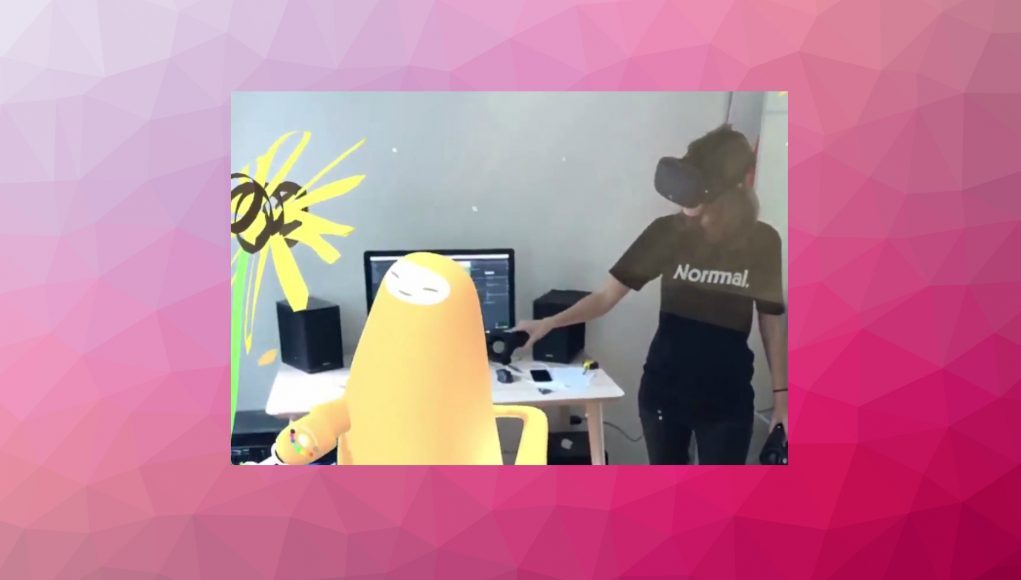We’re all waiting for the day when you can put on a singular, tether-free headset and experience all the ‘R’s that VR/AR/MR have to offer—and NormalVR, a “small but focused” group of passionate immersive media creators just gave us a peek into what’s possible when you mash it all together.
Known recently for their whimsical open source keyboard (and magnificently weird blobby-guy), Normal is a group of remotely-located developers that are using their own technology to make developing from separate locations an easier experience. By their own admission, they aren’t entirely sure what they’re doing, but it’s clear from the video that surfaced yesterday that they’re hitting on some very big ideas and executing them with serious flair.
In a recent tweet, the group shows what at first appears to be another fun video demonstrating the potential of creating apps with Apple’s recently released ARkit. But this is more than just a dancing hotdog-guy. Zooming out, we see the blobby-guy avatar is in fact controlled by a person using an HTC Vive standing just out of frame, creating a digital sunflower with some species of art program like Tilt Brush (2016).
Why is this so important? Normal is building this on readily available, cost-effective hardware and it seems to work perfectly.
As a launchpad for universal Windows apps that are designed to work across HoloLens and the company’s wallet-friendly fleet of VR headsets, Microsoft’s Windows Mixed Reality Platform is taking the first baby steps into making sure there’s a strong base of apps in the AR/VR shared ecosystem. More important to the scope of the article, Microsoft also spearheaded a neat way to turn your DSLR into an AR capture device so you can see what goes on in the digital realm, but this requires you to buy an extra HoloLens, which at $3000 is a pretty steep price to pay.
By picking up an iPhone and a VR headset like the Oculus Rift, which now costs even lower than ever at $400, developers can start building the future of games and apps for all immersive platforms—hopefully coming sooner rather than later.







